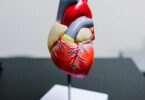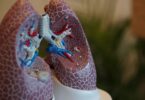Fever is an important sign your body is fighting an infection. It helps keep viruses and bacteria from multiplying too quickly.
The main way to prevent highly contagious viral fevers is to stay home and keep from spreading them to others. That includes covering coughs and sneezes so that others don’t infect you with the disease.
Wash Your Hands
One of the best ways to prevent highly contagious viral fevers is to wash your hands frequently with soap and water. This simple act can save you and your family from serious illness.
In addition, hand washing can protect you from a microscopic parasite called giardiasis that causes nausea, diarrhea and dehydration. It can be transmitted through contaminated water or food, so it’s especially important to wash hands well before eating.
People who have weak immune systems or are pregnant should also be extra careful when it comes to hand hygiene. They may be more vulnerable to contracting certain viruses, such as cytomegalovirus (CMV), that can cause hearing and vision loss, intellectual disability, and even death in the unborn child.
Wash Your Clothes
Viral fevers can spread quickly from one person to another. This can happen when someone coughs or sneezes, when they drink or eat something contaminated with germs and when they come into contact with an infected person.
But, you can reduce the chances of highly contagious viral fevers by taking extra care when washing your clothes and linens. Germs can survive for weeks on clothing and other surfaces, so make sure to regularly wash and dry your clothes and use a disinfectant when you wash linens and towels.
You can also sanitize your laundry area by applying household bleach to it (make sure the type you use is intended as a disinfectant). This will kill bacteria and other microbes that might be lurking in your dirty laundry.
Wear a Mask
When you’re sick, wearing a mask can help prevent highly contagious viral fevers from spreading to others. They protect you from respiratory droplets that carry the virus and can be spread when you sneeze or cough.
Respiratory droplets are very small (less than 5mm in size) and can travel up to 6 feet when someone breathes them in. They can also be caught on your hands and other surfaces when you touch them.
In a study, researchers found that wearing a surgical mask reduced a person’s chances of getting the flu by 70%. They recommended that people who are not vaccinated or who have a compromised immune system wear a mask when they’re around other people.
A good-fitting mask is the key to its effectiveness. Make sure you get a mask that fits snugly against your face and nose and has good filtration. It should be made of materials that block virus particles.
Vaccinate
Vaccines train your immune system to fight harmful invaders, like viruses and bacteria. They can prevent serious illnesses and help stop disease from spreading.
Getting vaccinated helps protect everyone in your community. This protection is called community immunity.
For example, if enough people get vaccinated against measles, it’s harder for the measles virus to spread. That means measles is less likely to occur in your community and less likely to be dangerous.
Most vaccines are made with live or attenuated pathogens (viruses and bacteria) that can still replicate in the body, but don’t cause illness. They are used because they usually generate longer-lasting immunity than killed vaccines that do not replicate and are more stable for storage purposes.








